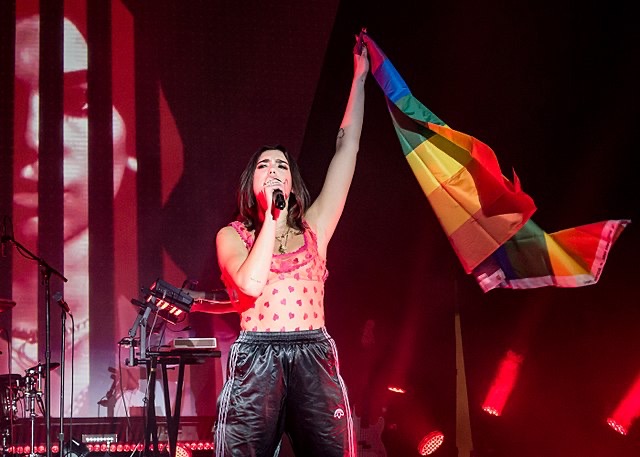Women make up less than a quarter of main stage UK festival acts
An analysis of Britain’s top music festivals revealed that less than a quarter of main stage acts in 2024 lineups are women.
Comparing the likes of Glastonbury, Reading and Leeds, Download, Wireless, Truck Festival and Isle of Wight Festival, the statistics show limited movement towards equality across main stage acts over the past year.
Headliner slots have seen the biggest increase in the past year, jumping from 4.8% in 2023 to 27.3% in 2024.
Excluding industry giant Glastonbury, the number of exclusively female acts across 2024 main stages has stayed the same or decreased since last year.
Ellie Adams, a researcher into women’s safety at live music events said: “A lack of gender diversity across festival line ups contributes to a ‘lad culture’ and leads to the normalisation of the harassment of women in these settings.
“What happens at the top of the industry will be reflected all the way down to the bottom and felt by festival attendees and concertgoers.”
What the study shows
Key findings from the study indicate that the number of female artists performing on main stages in 2024 has generally dropped from numbers in 2023.
This excludes Glastonbury, who takes the lead with their number of main stage female performers increasing by 105.9% from 2023 to 2024.
But other festivals are less progressive, with the number of exclusively women artists dropping or remaining the same since last year.
Perhaps the most shocking here is Isle of Wight Festival, where the number of female artists on its main stage has dropped by nearly a third (31.4%).
However, in relation to women, mixed groups, and artists who identify as non-binary, festivals are performing marginally better than the previous year
Whilst the percentage has dropped for Download, Isle of Wight and Wireless, it has increased for Reading and Leeds, Truck and Glastonbury.
Glastonbury has seen the most significant increase of non-male acts on their Pyramid stage, rising by 35.9% from the previous year.
Only two festivals in the analysis, Glastonbury and Truck Festival, have met, or are close to meeting, an equal 50/50 split on their main stages.
Isle of Wight Festival has seen the most dramatic decrease in their number of non-male acts, dropping by 33.3% from 2023 to 2024.
The data also reveals that Download Festival has the least amount of women performers on its main-stages across both 2023 and 2024.
Subsequently, Download and the Isle of Wight are the only two festivals in the study that do not have women or mixed group headliners this year.
Glastonbury again leads the way here, with Dua Lipa and SZA taking two of three headline slots for 2024.
Wireless has a 50/50 split with their headliners this year too, with Nicki Minaj and Doja Cat gracing the main stage.
But whilst these numbers have increased in the past year, they are still far from equal.

The implications of gender disparity in lineups
Louise Watkins, one fifth of indie band Pennine Suite who are playing Truck Festival this year, spoke strongly about the implications of male-dominated lineups.
She said: “Some festivals have notoriously been a bit of a man fest out of pure laziness, or misogyny, homophobia and other prejudices.
“It is so important that diversity in all forms is represented, to give people hope that they have a rightful place in the industry.”
Watkins suggested that a lack of diversity reflected wider misogyny within the music industry.
She said: "With men, their talent is recognised first, but with women, their looks are.
“Women are absolutely objectified in the music scene.”
In 2024, the Women and Equalities Committee published a report following an inquiry into Misogyny in Music.
The inquiry revealed that women seeking careers in music face unjustifiable limitations in opportunity, a lack of support, gender discrimination and sexual harassment.
In the report Melvin Benn, Managing Director of Festival Republic, said: “We endeavour to put on stage what people are listening to.
“Radio has a greater ability to direct audience tastes than we have, we can only reflect.”
However, women’s safety and representation researcher Ellie Adams rebutted this point.
Adams said: “These organisers have a large capacity to uplift acts that might otherwise be ignored, and I think if the big festivals made a clear step to promote gender representation it would send a big message to other parts of the industry to do the same.
“Someone needs to take the first step so why can’t it be festival organisers?"

Post a comment